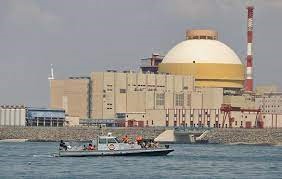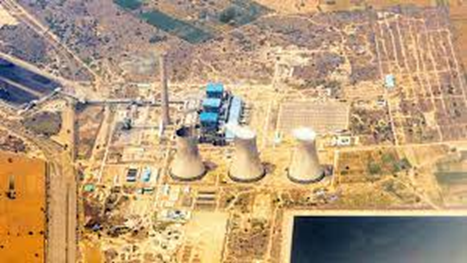- Courses
- GS Full Course 1 Year
- GS Full Course 2 Year
- GS Full Course 3 Year
- GS Full Course Till Selection
- Answer Alpha: Mains 2025 Mentorship
- MEP (Mains Enrichment Programme) Data, Facts
- Essay Target – 150+ Marks
- Online Program
- GS Recorded Course
- Polity
- Geography
- Economy
- Ancient, Medieval and Art & Culture AMAC
- Modern India, Post Independence & World History
- Environment
- Governance
- Science & Technology
- International Relations and Internal Security
- Disaster Management
- Ethics
- NCERT Current Affairs
- Indian Society and Social Issue
- NCERT- Science and Technology
- NCERT - Geography
- NCERT - Ancient History
- NCERT- World History
- NCERT Modern History
- CSAT
- 5 LAYERED ARJUNA Mentorship
- Public Administration Optional
- ABOUT US
- OUR TOPPERS
- TEST SERIES
- FREE STUDY MATERIAL
- VIDEOS
- CONTACT US
Civil Liability for Nuclear Damage Act 2010
Civil Liability for Nuclear Damage Act 2010

Latest Context:
Due to issues related to India's nuclear liability law, the plan to build six nuclear power reactors in Maharashtra's Jaitapur which is currently the world's biggest nuclear power generation site under consideration has been delayed for over a decade.
Laws on Civil Nuclear Liability
Background
- Laws on civil nuclear liability enunciate that compensation will be given to the victims for nuclear damage caused by a nuclear incident or disaster. These laws set out very clearly who will be liable for that damage.
International Conventions
- The IAEA acts as a depositary of several international legal instruments on civil liability for nuclear damage. It comprises the Vienna Convention on Civil Liability for Nuclear Damage and the Convention on Supplementary Compensation for Nuclear Damage.
- The umbrella Convention on Supplementary Compensation (CSC) was adopted in 1997 with an objective of establishing a minimum national compensation amount.
- India ratified CSC in 2016.
India’s Civil Liability for Nuclear Damage Act (CLNDA) of 2010
Objective
- India enacted the CLNDA in 2010 to provide a speedy compensation mechanism for the victims of nuclear accidents.
Liability on Operator
- The CLNDA makes provisions for strict and no-fault liability on the operator of the nuclear plant where it will be held liable for damage regardless of any fault on its part.
- It specifies the amount the operator will have to pay in case of damage caused by an accident at ₹1,500 crore.
- It also necessitates the operator to cover liability through insurance or other financial security.
Government’s Role
- The CLNDA expects the government to step in when the damage claims exceed ₹1,500 crore
- It restricted the government liability amount to the rupee equivalent of 300 million as Special Drawing Rights (SDRs).
Supplier Liability Clause
- By realizing that the defective parts were partly responsible for the Bhopal gas tragedy in 1984, the government of India went beyond the provisions of CSC in order to provide for supplier liability over and above that of the operator in CLNDA.
- Under this provision, the operator of the nuclear plant can seek recourse from suppliers in the event of a nuclear incident caused by supplier actions including the supply of equipment or materials with defects, sub-standard services, or the actions of supplier employees.
Note
- The CSC defines “only” two conditions under which the national law of a country may provide the operator with the “right of recourse”, where they can draw liability from the supplier. First condition: If it is expressly agreed upon in the contract. “OR”. Second condition: If the nuclear incident is “committed from an act or omission with an intent to cause damage”.
Reason for the Supplier Liability Clause an Issue in Nuclear Deals

-
Deters Foreign and Domestic Suppliers: This is the only law where suppliers can be asked to pay damages. That is the reason foreign as well as domestic suppliers of nuclear equipment have been wary of operationalizing nuclear deals with India.
-
Makes Suppliers Vulnerable: The suppliers have raised issues about potentially getting exposed to unlimited liability under CLNDA because the compensation amount is not fixed under this law as it has been fixed for the operator. Moreover, they also highlighted the ambiguity over how much insurance is to keep aside in case of damage.
-
Lack of Clarity involves Other Laws: Due to the lack of a comprehensive definition of the types of ‘nuclear damage’, the act potentially permits civil liability claims to be brought against the operator and suppliers through other civil laws.
-
Attracts Criminal Liability: Moreover, this Act does not prevent a person from bringing proceedings against the operator under any law other than this Act. It allows criminal liability to be pursued against the operator and the supplier wherever applicable.
Other Issues with CLNDA
-
Monetary Capping on Compensation: This act fixes the liability to a certain monetary limit (for operators: ₹1,500 crores, for government: rupee equivalent of 300 mn SDRs). The biggest problem with such capping is the situation when the damage exceeds the limit. Furthermore, the Act does not clearly provide any provision with regard to the cost of damages exceeding the limit.
-
Burden on Taxpayers: Another problem is that In India these plants are state-owned and operated through NPCIL and so ultimately the responsibility for such disasters will be borne by common taxpayers.
-
Neglect of the Additional Costs: Past incidents like Chornobyl have shown that the party at fault for a nuclear incident must incur additional costs such as cleaning up and safe disposal of nuclear waste that are very expensive and require caution. In this situation, the Act does not provide any provision for these additional costs.
-
No Foreign Jurisdiction: Indians can’t move to a foreign court to seek compensation when India takes supplies from many foreign suppliers which are foreign entities to Indian Law.
Way Forward
-
Provisions for extraterritorial jurisdiction should be made in order to get access to foreign courts when compensation is to be sought from a foreign supplier. International Agreements or a robust dispute resolution mechanism could be a way out.
-
A cap on their liability should also be put and a maximum limit on the insurance amount should also be put in order to take suppliers into confidence.
-
Law should be amended to clear the ambiguity in the provisions for criminal liability. The law must be eased or the scope of criminal proceedings must be clarified.
-
To ensure that the burden is not solely on taxpayers there should be a way out to explore alternative funding mechanisms like insurance or a dedicated fund.




